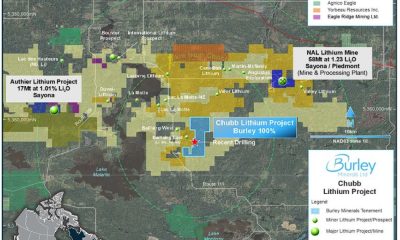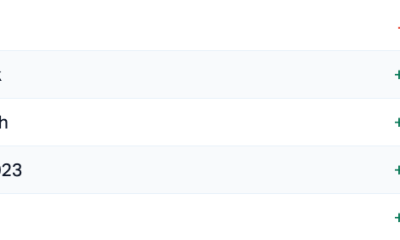Base Metals
FDA approves GSK’s JAK inhibitor for rare blood cancer after three-month delay
The FDA approved a new JAK inhibitor, momelotinib, from GSK for adults with the rare bone marrow cancer myelofibrosis who also have anemia. The approval…

The FDA approved a new JAK inhibitor, momelotinib, from GSK for adults with the rare bone marrow cancer myelofibrosis who also have anemia. The approval marks a major turnaround for the drug, which had failed earlier studies and was dumped by Gilead for a mere $3 million in 2018.
Momelotinib will be marketed as Ojjaara, GSK announced Friday. The FDA typically grants approvals to drugs in the populations in which they were tested in clinical trials. But while momelotinib was tested in clinical trials as a second-line option for myelofibrosis patients who have already tried another JAK inhibitor, the agency has given the drug a broader line-agnostic approval in intermediate- or high-risk primary or secondary myelofibrosis with anemia, meaning that patients with anemia can use it as a first option.
Ojjaara is the fourth JAK inhibitor to be approved for myelofibrosis, but clinical trial results suggest it can also reduce anemia — a substantial complication in people with the disease, since it disrupts the body’s ability to make blood cells. Earlier JAK inhibitors, such as Incyte’s Jakafi — which has been a mainstay treatment for myelofibrosis since its approval over a decade ago — and Bristol Myers Squibb’s Inrebic come with a risk of causing or worsening anemia.
 Luke Miels
Luke Miels“Our expectation is that ruxolitinib [Jakafi] will still remain the treatment for first-line patients who are not anemic. But we have an opportunity to get a sizable proportion of those patients who are anemic at diagnosis, and also then the second-line population as well who become anemic either through the disease itself or the activity of ruxolitinib, or a combination of those,” GSK chief commercial officer Luke Miels said in a media call ahead of the approval.
Another JAK inhibitor, Vonjo, is approved for people with myelofibrosis who also have blood platelet counts below a certain threshold. At the end of June, Sobi completed its $1.7 billion acquisition of CTI BioPharma for Vonjo.
The FDA delayed its decision on the GSK drug in June, pushing the new deadline to September so it could review new data. Miels said that delay was so the agency could look at two case reports on patients that GSK sent, which led to the FDA ultimately granting the drug a broader label.
GSK acquired momelotinib in 2022 by buying Sierra Oncology for $1.9 billion, after Sierra reported a successful Phase III study.
In that pivotal study with 195 patients, 25% of those who received momelotinib saw their total symptom scores go down by at least half over a one-month span. By comparison, just 9% in the control arm saw that level of reduction in symptoms. In addition, the drug helped reduce spleen volume (people with myelofibrosis can have enlarged spleens), and nearly one-third of patients who received the drug stopped blood transfusions, compared to one-fifth of the control arm.
According to Miels, there are roughly 25,000 people diagnosed with myelofibrosis in the US — just under half of them are anemic at diagnosis and in the second line, roughly two-thirds are anemic.
$3M castoff to blockbuster hopes
The line-agnostic approval from the FDA has bumped GSK’s peak sales projections of the drug to $1 billion to $2 billion — Miels said he expects the drug to reach sales “comfortably north of a billion US dollars.”
Sierra Oncology had paid Gilead only $3 million upfront for the asset in 2018, with another $195 million in milestone payments. The biotech was run by some of the same people from YM BioSciences which had been bought by Gilead years earlier in 2012 for $510 million after momelotinib showed promise in early studies.
At Gilead, momelotinib didn’t look promising in a late-stage study that pitted it directly against Jakafi, and Gilead shelved the drug candidate. Sierra steered the drug through a new late-stage study looking at a group of patients post-Jakafi instead, banking on momelotinib’s impact on anemia, and it paid off. GSK swooped in to buy Sierra, beating out six other companies who were interested in the drug, and pushed momelotinib into a commercial treatment, which it will market as Ojjaara.
Ojjaara works by inhibiting not only JAK1/2 like other JAK inhibitors, but also ACVR1, also known as ALK-2. The protein is important for regulating hepcidin — a hormone that controls how the body uses iron. By also blocking ACVR1, the drug lowers hepcidin levels and subsequently allows more iron to circulate through the body, improving anemia.
GSK also expects to receive an opinion from the EU’s drug committee by the end of this year, and Miels said GSK hopes to launch momelotinib in Europe in the first quarter of 2024.

White House Prepares For “Serious Scrutiny” Of Nippon-US Steel Deal
White House Prepares For "Serious Scrutiny" Of Nippon-US Steel Deal
National Economic Adviser Lael Brainard published a statement Thursday…
How to Apply for FAFSA
Students and families will see a redesigned FAFSA this year. Here’s how to fill it out.
Dolly Varden consolidates Big Bulk copper-gold porphyry by acquiring southern-portion claims – Richard Mills
2023.12.22
Dolly Varden Silver’s (TSXV:DV, OTCQX:DOLLF) stock price shot up 16 cents for a gain of 20% Thursday, after announcing a consolidation of…








